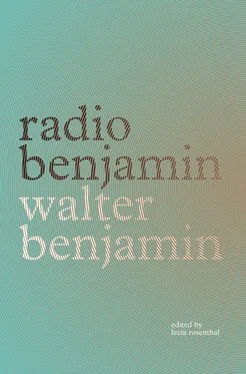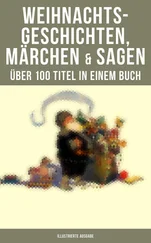HEINZMANN: I cannot share your outrage. In the end, you must take the public as it is. You know that in the last twenty years, I haven’t missed a single book fair. You speak with all kinds of people there, and you hear things they don’t shout from the rooftops. Do you know how many subscriptions Göschen got for the Goethe edition he published between 1787 and 1790? I have the figure from the man himself: six hundred. As for the individual volumes, the sales were even worse. For Iphigenie and Egmont, 300—not to speak of Clavigo and Götz.
UNGER: My dear man, you can’t blame that on the public. You know how much we suffer from pirate editions. For every legal exemplar there are ten, twenty illegal copies.
HEINZMANN: Well then, let me tell you something else. On my return journey this time, I spent an evening in Kreuznach. The previous year, my friend Kehr made a name for himself by establishing a lending library: Schiller, Goethe, Lessing, Klopstock, Wieland, Gellert, Wagner, Kleist, Hölty, Matthisson, and more. 61Nobody wanted to read any of it. In the neat phrase of Bürger, there’s a difference between an audience and a crowd. 62
SECOND MAN OF LETTERS: We will not be able to breathe freely until we have ended the stubborn, pretentious reign of Nicolai, Garve, Biester, Gedike, and whatever else this Berlin riffraff calls itself, and put Schlegel and Novalis in their rightful place. 63
HEINZMANN: You love a good joke.
SECOND MAN OF LETTERS: There is no victory without a fight. If Schiller and Goethe don’t want to fight, then we must place our hopes on a younger generation.
HEINZMANN: I can give you a taste of the tricks of these young people. Friedrich Schlegel considered increasing the sales of the Athenaeum by offering free spice cakes with each issue.
UNGER: A very modern idea. But in this, Schiller is even more Machiavellian. When Die Horen was failing due to poor sales, he wanted Cotta to insert an article threatening the state in the final volume, so that they would go down in glory. 64
HEINZMANN: I cannot say, my good gentlemen, that any of this sits well with us. At any rate, I can still feel my bones from the trip in the postal coach. And we cannot assume that Breitkopf will be arriving before noon. How about a short stroll to the Café Richter?
We hear a drum, a horn ( or the like ) accompanied by the voice of a
CRIER: All ye honorable guests of the book fair, especially our esteemed book venders, publishers, collectors of rare books, also scholars, pastors, and all other persons of high standing — we announce that the great sale of rare books organized by Mr. Haude and Mr. Spener in Berlin, collections of the King and of the Academy of Scholarly Booksellers, has begun at the Silver Bears.
UNGER: As for me, I’ll be having my breakfast at the Silver Bears.
SECOND MAN OF LETTERS: That would be the first book sale you missed, Mr. Businessman … Don’t inconvenience yourself, Mr. Heinzmann. We will meet again.
THE AUCTIONEER: Political and moral discourses on Marci Annaei Pharsalia, by Mr. Veit Ludwigs von Seckendorf, Privy Advisor and Chancellor to the Elector of Brandenburg and Councilor of the University of Halle in Saxony, presented in a special new edition in German with facing translations in Latin on each page and accompanying annotations of obscure and difficult figures of speech as well as an indispensable index, Leipzig 1695…
VOICE OF A BIDDER: Eighteen groschen.
UNGER: One would no longer dare print such a title. Here, neither publisher nor author wishes to puff himself up in the title.
The sound of the gavel.
THE AUCTIONEER: Number 211. “Mirror for the Prince, Anti-Machiavelli, or the Art of Governance,” Strasbourg 1624.
VOICE OF ANOTHER BIDDER: One thaler.
UNGER: The Latin edition of 1577 would be considered rare, but the German far more and only a few are aware of it … Two thalers.
VOICE OF THE OTHER BIDDER: Two thalers and ten groschen.
UNGER: Three thalers.
THE AUCTIONEER: Going once, going twice … Sold.
The pounding of the gavel.
THE AUCTIONEER: Sold to?
UNGER: Johann Friedrich Unger, Bookseller, Berlin.
THE AUCTIONEER: Number 212. The Works of Johann Wolfgang von Goethe, Leipzig: Georg Joachim Göschen, 1787–1790. Unfortunately, we only have the seventh volume of this handsome edition.
UNGER: The seventh volume, distinguished scholar, but that’s … The sound of a gong.
THE VOICE OF THE NINETEENTH CENTURY: Faust! 65The world legend of the German bourgeoisie, beginning on the worldly stage, ending in the proscenium of Heaven, beginning with the infernal devil of black magic, rising to the earthly devil of statecraft, beginning with appearances, ending in voices. A small puppet show opens at the annual fair to address the sufferings and humiliation of the German bourgeoisie, but also its history, and at the heart of this history the image of antiquity, Helen, and the Palace at Sparta.
THE ANNOUNCER: Silence! How dare you steal my lines?
THE VOICE OF THE NINETEENTH CENTURY: I am the nineteenth century, and have already stolen the lines of many others. I anticipated the Classical authors before they had even finished writing, and was greeted by the greatest among them before he had even glimpsed a quarter of me, with such words that I have the right to be heard here.
THE ANNOUNCER: How is it, in your opinion, that he greeted you? I believe we are speaking here of Goethe?
THE VOICE OF THE NINETEENTH CENTURY: I see that you are still in school. Goethe said of me:
Everything nowadays is ultra, everything perpetually transcendent in thought as in action. No one knows himself any longer, no one understands the element in which he moves and works, no one the subject which he is treating. Wealth and rapidity are what the world admires, and what everyone strives to attain. Railways, quick mails, steamships, and every possible kind of facility in the way of communication are what the educated world has in view, that it may overeducate itself, and thereby continue in a state of mediocrity. Properly speaking, this is the century for men with heads on their shoulders, for practical men of quick perceptions, who, because they possess a certain adroitness, feel their superiority to the multitude, even though they themselves may not be gifted to the highest degree. Let us, as far as possible, keep that in mind with which we came hither; we, and perhaps a few others, shall be the last of an epoch that will not so soon return again. 66
THE ANNOUNCER: You have no cause to be proud of such a greeting.
THE VOICE OF THE NINETEENTH CENTURY: I lived up to it. I expanded a middling culture generally, as Goethe prophesied.
THE ANNOUNCER: A middling culture? As long as your nineteenth century lasted, the Germans didn’t open their greatest volume of poetry. And only recently did Cotta sell the last copy of the Westöstlicher Divan from the publishing house. 67
THE VOICE OF THE NINETEENTH CENTURY: It was too expensive. I brought editions to the market that reached the people.
THE ANNOUNCER: People who didn’t have time to read them.
THE VOICE OF THE NINETEENTH CENTURY: At the same time, my century gave the mind the means to expand itself more quickly than by reading.
THE ANNOUNCER: In other words, it founded the tyranny of the minute, the lash of which we still feel today.
We hear quite clearly the ticking of the second hand of a clock.
THE VOICE OF THE NINETEENTH CENTURY: Goethe himself embraced this cadence, and advised his grandson to adapt himself to it.
The following poem is read briskly to the cadence of the second hand:
Читать дальше












